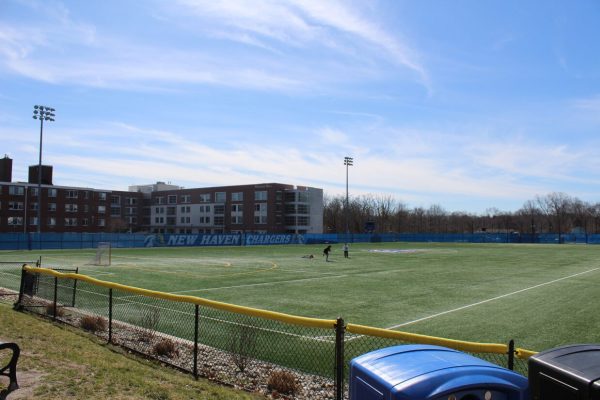Authority drowns the brain and ruins morals
Why does authority drown the brain in thoughts that make some feel that they have control over the environment around them? This authority can be seen in both higher levels, in the form of religion, social advocacy and political campaigns and more certainly in lower levels through the people who allow their “promotion” to become their personality.
People who achieve a certain level of authority, which would correspond to having some power over the actions of another, become fascinated by matters that have little to no relevance to the lives of themselves or others. At the University of New Haven, I’ve noticed many problems with authority as a student.
Some of these problems include the parking limitations for residential and visiting students; possible mold in residential dorm buildings; improper recognition of students who identify differently than their assigned-birth gender or pronouns; a proper understanding among professors as to how mental health can impact a student’s abilities in class; the Title IX office and how they have been accused of making the process more difficult, with a change.org petition being started that has acquired over 3000 signatures, for students who are handling situations that nobody should have to deal with (all the power to you); and the upkeep of accessibility around campus with a number of dorms and buildings here on campus not being able to accommodate students with physical disabilities such as wheelchair access.
There are many more issues that I’ve noticed on campus, certainly too many to list here. The similarity with each of the problems is that those who have the ability to make a difference in finding a solution are more focused on enforcing restrictions rather than discussing how students’ quality of life could be impacted.
There is an emphasis on the six-week retention rates at the university by the Office of Residential Life and Dean of Students Office. The six week retention theory states that college students are more likely to remain at a university if they develop a sense of community and belonging during their first six weeks. The concern stems from ensuring the retention of students throughout their academic years and finding ways to promote a community that is both inviting and functional in preparing students for the remainder of their life, both on and off campus. This is accomplished through residential assistants by programs, involvement within the community and serving as a resource to their residents.
However, how could students feel excited to pursue their academic journey when they could end up hospitalized for indirect exposure to black mold living above their bedroom ceiling tiles, or who are constantly being disregarded by those in authority when pleading for help regarding health and wellness issues?
People with positions of power at the university, remember who you are meant to be working for. Everything that goes into working at a university comes back to the students, the profit and who attend and remain. With the current tuition rates in this country, there is no reason the safety and health of students shouldn’t be prioritized.
What is the excuse for these problems lasting as long as they have? Give the students the respect they deserve. Listen to them. Discuss with them. Find solutions with them, and don’t ignore them. Treat the students here as adults and allow them to discover themselves. Let them make mistakes, learn from them and grow into an adult they could be proud of.
In his retirement email, Chancellor Steven Kaplan said one of his regrets from his time as President was the “trade-off” of his work consuming his time and prohibiting him from being present in the campus community. For all current and future leaders here at the University, learn from this.
This campus community can only exist with the work of us all and in the end, what is the reason you are doing the work you do if not for the students who go here? Think before you speak. Isn’t that what you all preach to us?








